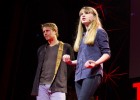Cargando...
Recursos educativos
-
Nivel educativo
-
Competencias
-
Tipología
-
Idioma
-
Tipo de medio
-
Tipo de actividad
-
Destinatarios
-
Tipo de audiencia
-
Creador
Lo más buscado
- Actividades de vocabulario quinto
- Descargar ejercicios de lengua
- Palabras con z
- Arte paleolítico
- Planetas interiores
- Actividades ángulos primaria
- Imprimir material tercero
- Astros del planeta tierra
- Clasificación de los animales
- Ejercicios resueltos primero
- Realidad aumentada
- Juegos de matemáticas cuarto
- Competencias básicas
- Actividades de lenguaje para primaria
- Experimentos de ciencias para tercero
-

Answer. Rural and urban population in Spain
EduBook Organización
- 6092 visitas
Review what you have studied and do the following activities: When do we consider that a region has a predominantly urban population? Where in the country are the majority of urban populations? Where…
-

Final self-evaluation 3.07 - Medieval Cities
EduBook Organización
- 5834 visitas
Which of the following statements are true or false?: In the cities, the artisans of each profession were grouped into guilds. A new social class, the bourgeoisie, emerged in the new urban society. The…
-

Self-evaluation 3 - The Roman Empire
EduBook Organización
- 5605 visitas
Complete these sentences about early Roman society with the missing words: Roman citizens were divided into two classes: the minority of nobles, known as , and the lower class majoriy, known as . The…
-

The simplest invertebrates
EduBook Organización
- 5538 visitas
The most common invertebrates are sponges, cnidarians, flatworms, nematodes, annelids, molluscs, echinoderms and arthropods. 1.1. Poriferans or sponges Sponges are aquatic animals. They act as filters…
-

Language and religion
EduBook Organización
- 5239 visitas
All Greeks used the same language and alphabet. Homer's poems (the Iliad and the Odyssey) explained their common origin and the achievements of their ancestors. Greeks also worshipped the same gods.…
-

Unit 11: A bipolar world: the cold war and decolonisation (1945-1991)
EduBook Organización
- 4789 visitas
Cold War (n): the state of political and military tension, but not actual war, between the Eastern and Western Blocs from the end of World War II to the 1990s. COMECON (n): an economic association of…
-

Unit 11: Towards a global system
EduBook Organización
- 4648 visitas
Brain drain (n): a situation in which the most skilled workers in less economically developed countries (LEDCs) go to work in more economically developed countries (MEDCs). chain (n): a number of…
-

Mountain climate and vegetation
EduBook Organización
- 4536 visitas
The mountain climate The high mountain ranges in Spain have a mountain climate. Typical characteristics of a mountain climate are long, cold winters, with temperatures below 0°C, and short, cool…
-

Summaries - The Animal Kingdom (I). Invertebrates
EduBook Organización
- 4441 visitas
1. The simplest invertebrates The most common invertebrates are sponges, cnidarians, flatworms, nematodes, annelids, molluscs, echinoderms and arthropods. Sponges are aquatic animals. They act as…
-

TED Talk - Science is for everyone, kids included
Carolina Vazquez Familiar
- 3 lo usan
- 3833 visitas
What do science and play have in common? Neuroscientist Beau Lotto thinks all people (kids included) should participate in science and, through the process of discovery, change perceptions. He's…
Te estamos redirigiendo a la ficha del libro...












